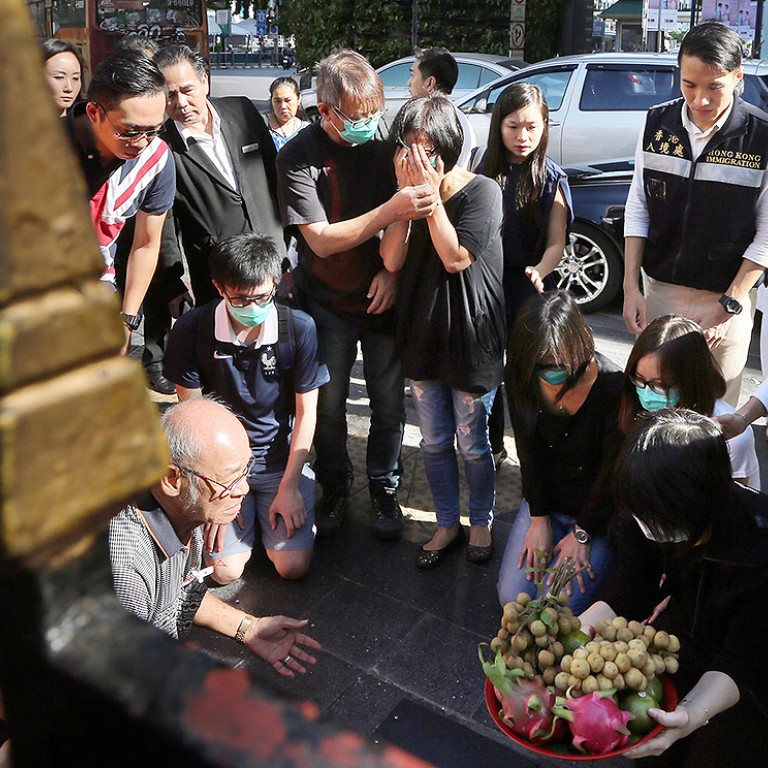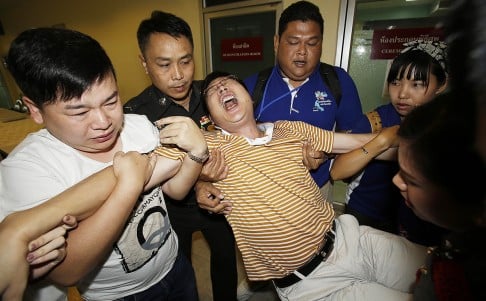
Update | Beijing rejects ‘hugely irresponsible’ speculation that Uygur militants were behind Bangkok bombing
No evidence Xinjiang militants exploded bomb, insists Chinese embassy, as Thai junta says it is unlikely international terrorists were involved
China has slammed "hugely irresponsible" Thai media reports that Uygur separatists carried out Monday's deadly bomb attack in Bangkok. Beijing's first comments on the bombing, which killed 20 people and injured more than 120, came as Thai authorities said they no longer believed international terrorists were behind the atrocity.
"Don't you think it is hugely irresponsible for anyone to draw a conclusion without any evidence?" a spokeswoman for the Chinese embassy told the yesterday in response to media reports suggesting a "revenge motive" by militants from the troubled Xinjiang region after Thailand deported 109 Uygurs back to China last month.
Don’t you think it is hugely irresponsible for anyone to draw a conclusion?
"The Thai authorities are still investigating now; no one should jump to such a conclusion at this stage," she said.
Thailand's junta said they suspected at least 10 plotters were involved in the attack on the Erawan Shrine, which was crowded with tourists, but Chinese nationals were not the "direct target".
"The security agencies have collaborated with intelligence agencies from a lot of countries and have come to the same preliminary conclusion that the incident is unlikely to be linked to international terrorism," military spokesman Colonel Winthai Suvaree said yesterday in a televised statement.
WATCH: Thai police release drawing of suspect in Bangkok shrine bombing
That leaves the possibility that the perpetrators were locals, feeding speculation that either Muslim separatists waging a low-intensity insurgency in southern Thailand, or domestic political activists, were involved.
But there has been no claim of responsibility so far and authorities have not blamed any group for the country's worst terrorist attack, which they claim was designed to wreck the economy.
The Erawan Shrine is particularly popular with tourists from China and other East Asian countries, and 11 foreigners were among the dead, including five from mainland China and two from Hong Kong.
The families of Vivian Chan Wing-yan, 19, and Arcadia Pang Wan-chee, 24, held a memorial yesterday at the shrine where the two Hongkongers were killed.
"My dear daughter, can you hear me? Will I ever see you again?" murmured a tearful relative of Pang.
Distraught relatives of other victims claimed the remains of their loved ones at a forensic institute. A 50-year-old man from mainland China was overcome by grief while he waited to retrieve the bodies of his daughter and wife.
Police said last night they had cleared two suspects in the bombing. The two two men, identified as a Chinese tourist and his Thai guide, were seen in a security video standing in front of the prime suspect at the shrine shortly before the bomb went off.
According to police, they questioned and freed the Thai man after he turned himself in, while the Chinese man had already left the country.

Checks at airports and other exit points found that no one matching his description had left the country since the attack.
Prime Minister Prayuth Chan-ocha suggested the main suspect was in disguise. "The criminal altered his appearance," Prayuth said. "It means there was preparation. It was as though he knew a camera was going to be there."
Prayuth had earlier suggested the attack was Thailand's problem and should be resolved internally, but yesterday he called it a threat to the whole region.
National police chief Somyot Pumpanmuang said the attack was planned at least a month in advance and a "big network" was involved. "This includes those who looked out on the streets, prepared the bomb and those at the site and ... those who knew the escape route. I believe there must have been at least 10 people involved," he said.
The blast comes at a sensitive time for Thailand, which has been riven for a decade by a sometimes violent struggle for power between political factions in Bangkok. A parliament hand-picked by the junta, which seized power in a 2014 coup, is due to vote on a draft constitution next month.
Critics say the draft is undemocratic and intended to help the army secure power and curb the influence of the country's elected politicians. The government has promised to restore democracy late next year.
